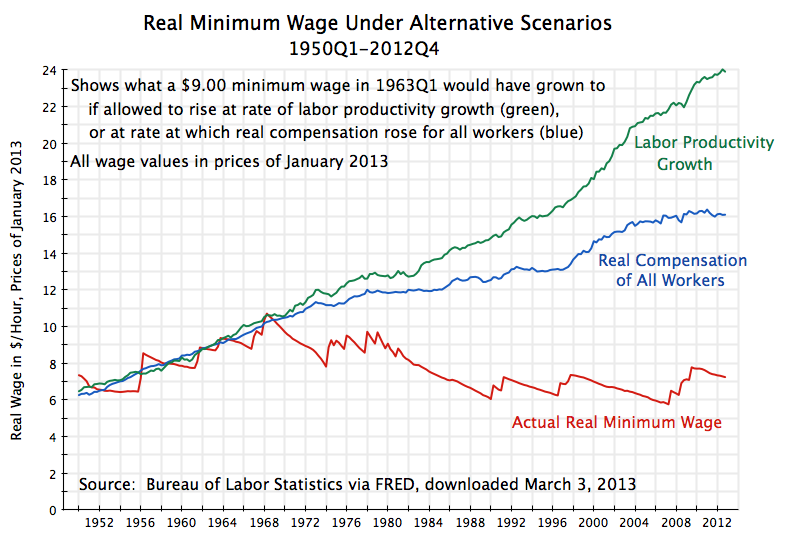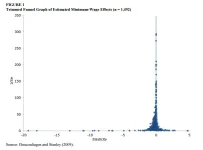A minimum wage hike *will help some people,* but for a temporary time frame until the price of goods and services adjust to the labor cost (adjusted price inflation pressure.. *will cause price inflation.*) What we will also see if an aggregate shift in the labor demand / supply curves equating to a probable less need for people working at this income quintile, meaning *will harm other people." Even the CBO report back in 2014 pointed all of this out in detail when we were talking about the $9.00 and $10.10 options. It is safe to assume that a $15 option would inflate the results. This is all economics 101.
In the end we have conflicting economist models on the real effect, but with a 5th income labor pool where we clearly have more workers than need for them there is little reason to suspect that all will be helped. And we know for sure that a minimum wage hike has zero chance of getting us to full employment.
"...the $10.10 option would reduce total employment by about 500,000 workers, or 0.3 percent, CBO projects. As with any such estimates, however, the actual losses could be smaller or larger; in CBO’s assessment, there is about a two-thirds chance that the effect would be in the range between a very slight reduction in employment and a reduction in employment of 1.0 million workers." (p1)
"Moreover, the increased earnings for some workers would be accompanied by reductions in real (inflation-adjusted) income for the people who became jobless because of the minimum-wage increase, for business owners, and for consumers facing higher prices." (p2)
"Real income would increase, on net, by $5 billion for families whose income will be below the poverty threshold under current law, boosting their average family income by about 3 percent and moving about 900,000 people, on net, above the poverty threshold (out of the roughly 45 million people who are projected to be below that threshold under current law.)" (p3)
https://www.cbo.gov/sites/default/files/44995-MinimumWage.pdf

